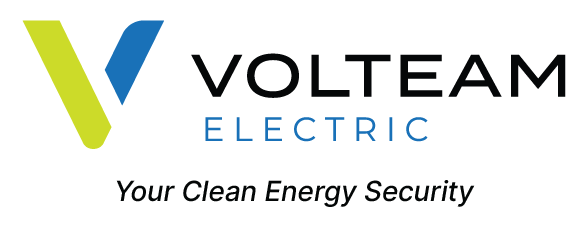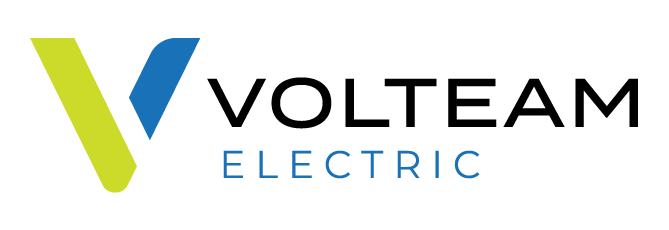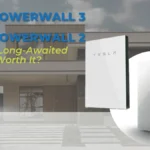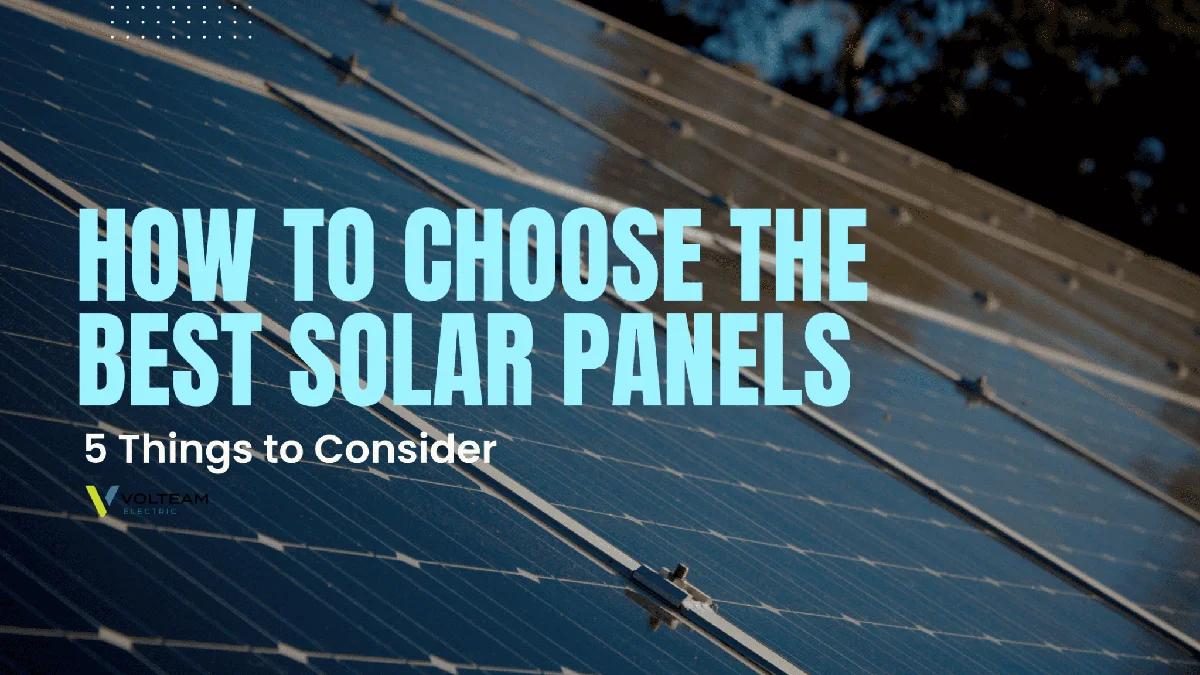
How to Choose the Best Solar Panels
If you’re thinking of going solar, it’s wise to ensure your system comes with the best solar panels. Having the best serves as a guarantee that your solar power system is bound to last, hence, protecting your investment.
However, choosing which panels to purchase is not a simple shopping errand. There are factors that require your utmost consideration, not to mention extensive research that needs doing, so you don’t miss out on any important information.
But fret not, we’ve rounded up key factors to think about when exploring your options. Our goal is to help you sift through every promising offer with its respective claims, features, and so on, ideally helping you to arrive at a practical decision. Let’s begin!
What are the Best Solar Panels: 5 Things to Consider
Solar panels that come from trustworthy brands can last splendid decades and save you money in the long run. That’s why when exploring the best solar panels in Australia, you might want to make a decision based on the following considerations.
1. Solar Panel Types
There are two leading types of solar panels: monocrystalline and polycrystalline. What’s the difference between the two and does the panel type impact performance, efficiency, and durability? Certainly.
Monocrystalline panels are often the favoured ones due to their higher efficiency, meaning they have greater energy yield even with fewer panels and won’t take up much space. Such appealing points, however, naturally make monocrystalline panels the more expensive option.

As for their appearance, they have an overall darker tint than polycrystalline panels.
Polycrystalline panels are the less efficient option, making them significantly cheaper. With less efficient panels, you’ll be needing a few more panels to produce sufficient electricity. Despite the extra panels you’ll potentially need, they still end up to be the affordable choice. They may be preferred by customers intent on reducing upfront costs.
Polycrystalline panels are blue and sometimes can appear to have variegated patterns.

2. Solar Panel Size
You’ll be able to determine the right solar panel size for your home or business by answering the following questions:
What is my daily energy consumption?
What is my available roof space?
What is my location and does it receive high amounts of solar radiation?
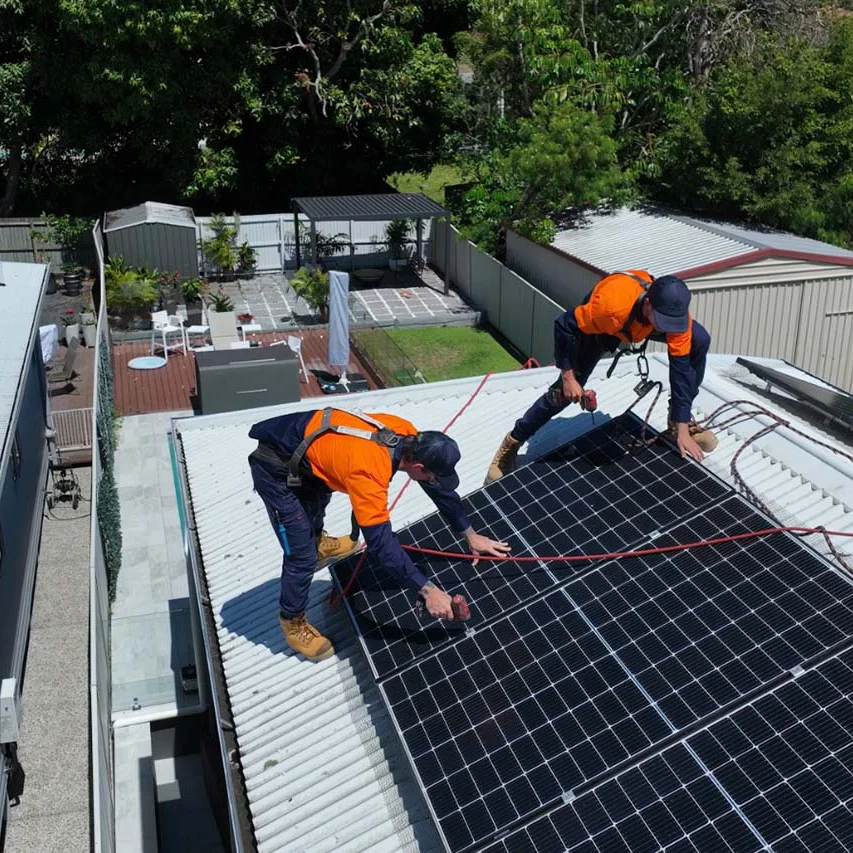
It’s helpful to know how much energy your household uses daily, so that you can match it with the right solar panel size. For instance, the 6.6kW system is a popular choice for average-sized to large homes, making it the ideal system size for those with daily energy consumption of around 24-30kWh. And if you have available roof space of approximately 35-45 square metres, then the 6.6kW solar power system is definitely for you (if budget permits it).
Your location can also affect the amount of sunlight the solar panels receive, which directly impacts the total energy output of a system. Consider a location such as Brisbane, which we all know is perfect for its prolific sunshine.
From this fact alone, we can surmise that a city producing around 2,800 hours of sunshine on average per year is a perfect location for harnessing solar energy and turning it into renewable energy that slowly but surely makes the world better.
So if your daily energy usage is about 26kWh, you can easily choose a system that meets your requirement. You can also expect your solar panels to perform according to their expected efficiency and output, which we’ll discuss further below.
3. Output Rating and Efficiency
The panel’s output rating impacts how much power it can generate. Most panels have a wattage between 250 watts and 400 watts, although there are a few panels that exceed the 400-watt mark, like Volteam’s 440W solar panels from Jinko, Trina, and Canadian Solar.
So what does a higher solar panel wattage mean in the solar industry? When your panels have a higher solar panel wattage rating, it means they can deliver greater power production. For obvious reasons, this information is essential to understand a solar panel’s capacity, which then helps customers make an informed decision.
However, the solar panel’s wattage isn’t the only thing to consider here. The panel’s efficiency is just as important. Energy efficiency refers to how much solar energy is converted into electrical energy. The higher the efficiency rating, the more electricity that the panel can generate.
Today, most home solar panels have efficiency ratings between 19% and 21%, although continuous innovation in solar tech has manufacturers reaching 22% or even higher. Considering a panel’s efficiency is crucial because high efficiency solar panels take up less space while generating more energy, reducing your electricity bills.
4. Manufacturer’s Warranty
The best solar panels in Australia come with solid warranty with many top-tier panels backed by warranties lasting 25 to 30 years. High-quality panels can even continue working even after their warranties expire. Solar industry’s longest coverage so far is Sunpower Maxeon’s 40-year warranty.
The only way to really maximise your solar investment is to purchase solar panels that will last for decades. The longer they perform to produce solar power, the higher the savings. There are two kinds of warranties: Product and performance.
The former protects your panels from issues like equipment and workmanship. Typical coverage is 10-12 years. Performance warranty, on the other hand, guarantees 90% energy production within 10 years and 85% at 25 years.
5. Quality and Brand
The overall quality of solar panels are often associated with brands, which only makes sense because how panels are manufactured and the quality of materials used to build them differ from one manufacturer to another.
Moreover, the overall quality of solar panels are determined by their efficiency, durability, and performance in various climates.
A manufacturer’s reputation, including their history and experience, as well as customer reviews, also help sift through the solar market’s many options.
The Takeaway: Finding the best solar panels in Australia
By knowing every important consideration discussed above, choosing the best solar panels for your home or business becomes easier. You can ask the right questions to your solar installers in North Lake and finally understand what your requirements and priorities are, helping you identify the right solar system size that will generate sufficient solar power and savings.
Of course, the variety of options available can still be overwhelming and making a decision is a tough one considering switching to solar is a sizable investment. At Volteam, we ensure our customers are thoroughly guided from day one.
Call us at 1300 865 832 — we’re here to help you work out your budget and maximise your available space with high-quality panels that will not only meet your requirements, but ideally your preferences too.
About the author

Marcin Hernik
Marcin Hernik is the Managing Director at Volteam Electric Pty Ltd, leveraging his expertise honed from TAFE Queensland's Electrical and Electronics Engineering, following his graduation from the University of Technology and Humanities in Radom. His career is marked by a commitment to excellence in electrical engineering and leadership in the industry.
